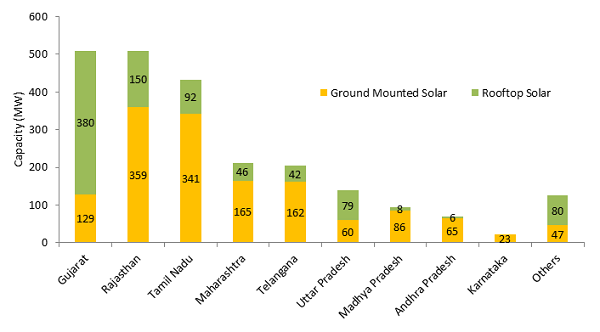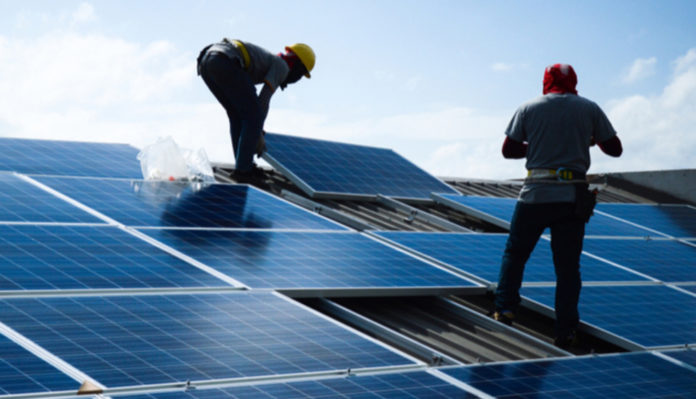New Delhi (NVI): About 883 megawatt (MW) of rooftop solar were added in India, in the period between January to September this year, despite the COVID-19 pandemic, according to a new report.
The new generation capacity included, a total of 2,320 megawatt (MW) of solar capacity comprising 1,437 MW of ground-mounted projects and 883 MW of rooftop solar, the Haryana-based JMK Research said in a report, which cited data released by the Ministry of New and Renewable Energy.
Under this, Rajasthan (360 MW), Tamil Nadu (341 MW), and Maharashtra (165 MW) were the leading states with most of the large-scale solar installations during this period.
Prior to the COVID-19 outbreak, JMK research had projected nearly 7-8 GW of utility-scale solar capacity addition in 2020.
However, only 1.4 GW capacity has been commissioned in the first nine months. Because of COVID 19, there were construction delays, restricted movement of equipment supply, and labour shortages eventually leading to project delays.
To compensate for this, the Ministry has issued a blanket extension of five months to all project developers. Now, most of this delayed capacity is likely to come up in the first half of 2021, the report said.
Moreover, Gujarat added 380 megawatt (MW) of solar rooftop capacity. The state ranks first with 380 MW capacity addition, contributing nearly 43 percent of the total rooftop installations in the first nine months of this year.
After Gujarat, Rajasthan (150 MW) and Tamil Nadu (92 MW) are the leading states who have added the highest rooftop solar capacity.

The primary reason behind the significant capacity addition in Gujarat is the “Surya Urja Rooftop Yojana – Gujarat” that targets installation of solar rooftops for 8 lakh consumers by March 2022 in the residential sector.
This scheme provides 40 percent of state subsidy on installation of systems up to 3 kW of size and 20 percent subsidy for 3 kW-10 kW.
The another reason for this upsurge in rooftop activity in Gujarat is the MSME policy introduced in September last year by the state government, as part of which MSMEs are allowed to install solar projects with more than 100 percent of their sanctioned load or contract demand, the report said.
Earlier the permitted installation limit was 50 percent of the sanctioned load. As per the new policy, MSMEs are also able to sell excess solar energy to the state government at a price of Rs 1.75/ kWh. The new policy also permits MSMEs to buy solar power from third parties.
-RJV








